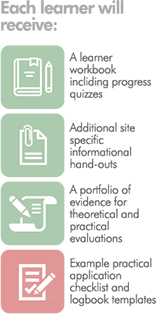 Y
You win some, lose some, but effective supervision can tip the scales in your favour. HRETD's "Supervisory Skills" course focuses on the practical and psychological aspects of team management. From communication techniques to conflict resolution, the course offers a broad spectrum of knowledge, enhanced by multimedia elements like quizzes and videos for a well-rounded learning experience.
Practical exercises within the course are designed to instill confidence and competence in managing diverse teams. Participants will engage in role-playing scenarios, problem-solving tasks, and decision-making exercises that mirror real-world supervisory challenges, equipping you with the skills to lead effectively and efficiently.
Level Up in Leadership. This course is invaluable for current and aspiring supervisors across industries, offering a toolkit of skills that can significantly improve team performance and job satisfaction.
Management training

Supervisory skills training
Team leadership principles
Course content
Introduction to Supervision
In this section, we delve into the intricacies of the construction industry, discussing its current trends, challenges, and governing regulations. We outline the pivotal
responsibilities and expectations that define the role of a Team Supervisor.
Participants will also gain insights into the dynamics of team behaviour, understanding
the individual roles and stages of team development that are essential for effective
leadership and management in construction settings.
Recruitment and Induction
This module focuses on the adherence to site and HR policies during recruitment and
selection. Learners will understand how to implement unbiased selection criteria and
ensure new team members undergo comprehensive induction, covering both
organisational information and job-specific training.
Project Management Basics
Here, we explore the essentials of project management, tailored for the complexities of
the construction environment. We discuss the critical phases and milestones that
make up a project's lifecycle, providing practical knowledge for effective scheduling
and planning. Special emphasis is placed on tools like Gantt charts for managing
timelines. Additionally, we examine best practices for allocating resources, such as
labour, material, and equipment, to ensure a project's success.
Safety and Compliance
Safety is paramount in the construction industry. In this part of the training, we focus
on establishing and enforcing site safety protocols, including the correct use of
Personal Protective Equipment (PPE) and what to do in emergencies. We also
discuss the legal obligations supervisors must adhere to, particularly in terms of the
Occupational Health and Safety Act.
Communication and Leadership
Effective communication and leadership are vital skills for any Team Supervisor. In this
section, we chat about various forms of communication, both verbal and written, and how
they can be employed effectively on the construction site. Conflict resolution techniques and best practices for maintaining a harmonious workplace are also discussed. Furthermore,
we explore various leadership styles, such as adaptive, transactional, and transformational, and how they can be applied in different scenarios.
Team Motivation and Performance Monitoring
This particular segment is designed to provide learners with a comprehensive set of
techniques for fostering a positive and motivating work environment within their
construction teams.
Coaching
Participants will learn to identify the skills and tools required for team members to
perform competently. On-the-job coaching techniques are taught, and learners are
instructed on how to communicate developmental needs to immediate supervisors.
Disciplinary and Grievance Handling
This module ensures learners understand how to adhere to Labour Legislation in the
workplace. Site and HR policies around discipline are covered, along with practical
approaches to addressing and resolving team grievances.
Assessment methods
We conduct a formative theoretical assessment at the beginning of the course to gauge the learner’s initial understanding (novices only). At the end of the training, a summative theoretical and practical application assessment is conducted, to find if the learner is competent; if not, additional developmental areas are identified and suggested.